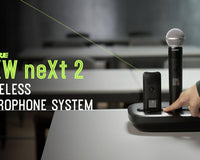Employees are, on average, 4% more productive in hybrid work settings, according to a survey of 6,000 workers and 1,500 decision-makers for Ricoh Europe.
According to workplace technology integrator Ricoh Europe, European businesses continue to miss out on the full potential of hybrid work.
In research carried out for the company by Opinium and analyzed by CEBR, business leaders said that workers are 4% more productive on average in a hybrid work setting.
According to this analysis of the views of 6,000 workers and 1,500 decision-makers across the continent, this potential growth has not been realized as only half (53%) of businesses have workers in a hybrid system.
If businesses that intend to shift towards hybrid work accelerated their plans, it could add €9 billion to Europe’s economy, according to CEBR, with the increased productivity associated with improved employee satisfaction and reduced commuting time.
Companies risk hampering future growth if they ignore the potential productivity uplift associated with hybrid work, says Ricoh Europe. Furthermore, working flexibly and managing personal and professional commitments benefits worker well-being and satisfaction. Academic research suggests this positively impacts talent retention and attraction, with a reduction in attrition of 35% for those able to work from home two days a week.
Yet, over half (52%) of decision-makers would like to mandate a full-time return to the office, despite most employees (76%) saying they would prefer some form of hybrid working set-up to a fully remote or office-based alternative. Organizations risk harming their competitiveness as an employer by ignoring workplace friction points that many workers still experience.
According to a survey conducted by Ricoh Europe, hybrid work settings have resulted in an average of 4% increase in employee productivity. The study included 6,000 workers and 1,500 decision-makers.
Nicola Downing, CEO of Ricoh Europe, said: “Supporting people to work flexibly will help businesses unlock significant financial gains while creating a happier and more fulfilled workforce. However, a hybrid work policy is futile without implementing the technology required to facilitate collaboration between colleagues and customers, wherever they are.
“The office remains essential for social collaboration and building a strong workplace culture. But spaces must be designed with idea sharing and creativity in mind, with digital functions essential to ensure easy communication with those working remotely. In a tight employment market, ignoring employee frustrations in the workplace is not an option.”
The research occurred in the UK, Ireland, France, Germany, Italy, Spain, and the Netherlands.
For more information, visit www.ricoh-europe.com/insights.
Contact us for your next hybrid meetign space






